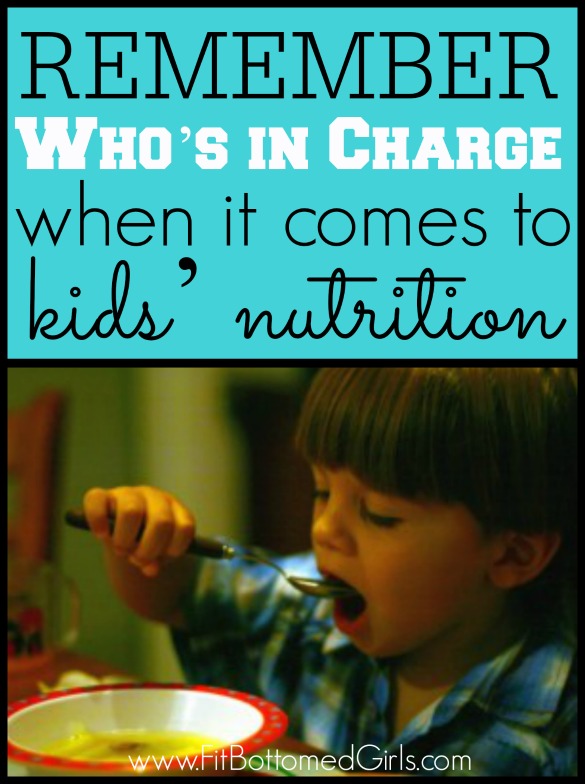Remember Who’s in Charge When It Comes to Kids’ Nutrition
Last week Fit Bottomed Mamas was all about kickstarting fitness in the New Year. This week, the focus turns to the kiddos in our first Active Kids Week!
Earlier today we reviewed Nutrition: What Every Parent Needs to Know, a wonderful resource to help parents make sure their kids are eating well from infancy and beyond. Now I’m sharing a few words of wisdom from the book itself that will ease the fears of parents of picky eaters everywhere. What’s more reassuring than advice from nutrition experts and pediatricians, after all?
Who’s In Charge?
When you serve food to your children, the responsibility for dealing with it is split two ways. You are in charge of deciding what to offer, and your child is in charge of deciding whether or not to eat it—in other words, “parents provide, children decide.” The mother of Dr. Stern’s 3-year-old patient often tried coaxing her child by saying, “Have one more bite for Mommy! One more bite for Mommy!” One day, her daughter said, “I will eat no more bites for ME!”
In many families, what frequently happens is that the parent announces what’s for dinner and the child protests. Then the parent—anxious that the child doesn’t eat enough—backs down by asking what the child would like to eat. This line of behavior leads to several outcomes, all of them negative. First, when the parent asks the child what she’d like, it puts the child in the inappropriate role of choosing food for the family. Children don’t have the knowledge necessary to make such important choices; it’s unfair to expect them to decide what’s good for themselves or their families.
Second, if more than one child is involved and each has a different request, the parent turns into a short-order cook: “Hamburger for this one…spaghetti for that one…who gets the omelet?” If your child turns up her nose at what’s served, you don’t have to apologize or make excuses. All you need to say is, “This is what we’re having today.” It’s a mistake to encourage, persuade or bribe a child to eat. Research has shown that such efforts have the opposite effect from what’s intended, and the child may actually end up eating less than if left alone. If your child refuses the meal you offer, it’s not your job to provide an alternative. You probably worry that if your child doesn’t eat, she’ll get hungry. Of course she will! And when she’s hungry, she’ll eat. There’s no better stimulus than hunger for getting a child to try something new. However, if your toddler misses a meal of her own free choice, it won’t make her sick and she’ll probably be ready to eat at the next regular meal or snack time. (Or if not the next, then the one after that.)
So a missed meal isn’t the end of the world, although it may feel like it. Have you ever dealt with food battles in your house? How did you cope? —Erin

